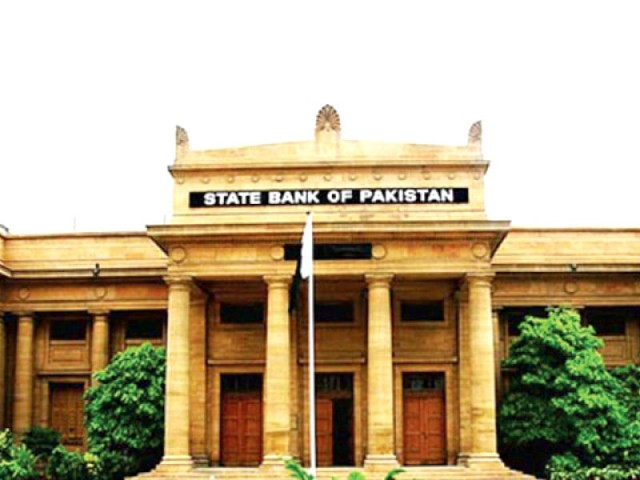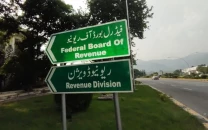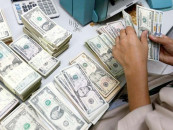Advisory committee: With low reserves, EAC advises against Euro bond
Members complain that their feedback was largely ignored.

Currently the private sector holds more foreign currency reserves than the State Bank, something which will undermine the bank’s regulatory role. PHOTO: FILE
The country’s leading economists have warned the government against tapping the international bond market with only $2.8 billion reserves in hand, urging it to wait for an appropriate time or else be ready to pay a higher price.
Independent economists who gathered in Q-Block – the seat of the finance ministry− under the umbrella of the Economic Advisory Council (EAC) also advised the government to present a realistic picture of the foreign currency reserves and exclude those held by individuals and commercial banks.
The issue came up for discussion when an upbeat Finance Minister Ishaq Dar shared the government’s plan to increase foreign currency reserves to $10 billion by next month. Economists sought an explanation of whether the government was also calculating privately held reserves as its own.
The minister, who is also chairman of the EAC, said that historically the reserves of commercial banks were treated as part of the total. Economists including Dr Abid Hassan and Dr Ashafque Hassan Khan advised the government that the actual reserves held by the State Bank of Pakistan (SBP) will be the determining factor in determining the price of the Pakistani bond by international investors.
The federal government is planning to float Euro bonds next month to raise money aimed at building foreign currency reserves, which dropped to a 13-year low of $2.8 billion by February 7. The $2.8 billion reserves are inclusive of the $500 million China deposit and forward contract obligations. Even after adding the reserves held by commercial banks, the country’s total reserves were $7.5 billion.
Foreign investors will critically evaluate the payback capacity of the government, though, like any sovereign country Pakistan has never defaulted on its international obligations.
By the end of March 2014, a sizeable increase in foreign exchange reserves is anticipated with a projected figure of more than $10 billion foreign currency inflows adding up steadily, according to a handout issued by the Ministry of Finance.
The members of the EAC appeared dejected and marginalised during the second meeting of the EAC, as they were not clear about why the government constituted the EAC and what role they would have to perform. Dr Sania Nishtar urged the government to define the role of the EAC and layout its expectations.
In the second meeting, economic experts were expecting that they would be asked to give their input on specific issues, according to a participant of the meeting who requested anonymity. During both meetings, most of the time was consumed by government officials and members, he added.
Finance Secretary Dr Waqar Masood gave a presentation on expenditure trends over the last five years, while Federal Board of Revenue chairman briefed the EAC members about the measures that the tax machinery wanted to take to improve an extremely narrow tax base.
It seemed that economists were sitting in a General Assembly, listening to one speech after another, but the problem of not taking decisions in the General Assembly persisted, said another member of the EAC.
The EAC members also urged the government to strengthen the country’s debt management office and appoint an independent but professionally sound person as its head, unlike the previous Director General Debt who worked more for protecting the interests of his previous bosses than for the state.
The EAC members advised the government to ensure authenticity of the official statistics, as the latest figures of growth in Large Scale Manufacturing (LSM) were contrary to growth trends observed in recent months.
Published in The Express Tribune, February 16th, 2014.
Like Business on Facebook, follow @TribuneBiz on Twitter to stay informed and join in the conversation.


















COMMENTS
Comments are moderated and generally will be posted if they are on-topic and not abusive.
For more information, please see our Comments FAQ